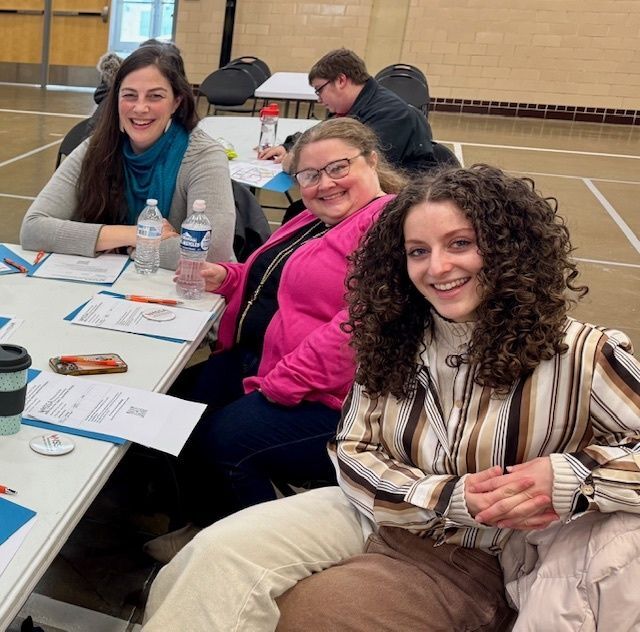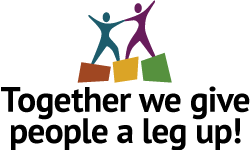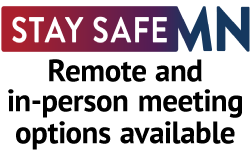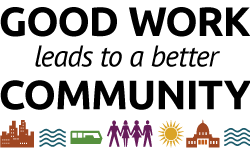
Hello! I’m Stacy (pictured here, striped shirt. with Maria and then Kristen at the Minnesota Social Services Association Day at the Capitol). I’m a Master of Social Work student at the University of Minnesota, specializing in Health, Disability, and Aging. This year, I interned at Daily Work, where I had the opportunity to support job seekers navigating systemic barriers to employment.
My internship has deepened my interest in employment equity, especially for people with disabilities. That’s why learning about Section 14(c) of the Fair Labor Standards Act is so important to me; it sits at the intersection of my studies, my internship, and my commitment to advocating for inclusive, dignified employment for all.
What is 14(c) and Why Does It Matter to Our Community?
The Fair Labor Standards Act of 1938 (under the Roosevelt Administration) set important worker protections like minimum wage, but it also created Section 14(c), which still allows certain employers to pay people with disabilities less than minimum wage if they have a special certificate.
Though it was originally meant to help people with disabilities get jobs, 14(c) now holds many back, especially in sheltered workshops where workers earn very low pay and are kept separate from others. Today, we know better—and it’s time the law caught up.
Who Uses 14(c)?
Lots of employers can apply for a 14(c) certificate from hospitals to schools to private companies. Most often, it’s used by organizations known as community rehabilitation programs or sheltered workshops. These places offer job training and work experience, but they also often pay subminimum wages.
To use 14(c), employers must get certified by the Department of Labor. They’re supposed to tell workers, both in writing and out loud, what their rights are and how the program works.
Why Are People Concerned?
Over time, there’s been growing evidence that 14(c) is being misused. Some employers use it to underpay workers with disabilities while claiming they’re offering job training. Investigations have shown that many employers fail to meet the legal requirements or misclassify their businesses to dodge the rules.
And even though the Department of Labor is in charge of checking up on these employers, those investigations often take a long time. In some cases, people could be underpaid for months or even years.
Why is this important?
At its core, this isn’t just about wages. It’s about dignity, equality, and opportunity. Everyone deserves to be recognized for the value they bring to their community and their workplace, no exploitation, no exceptions
When we pay people fairly, we tell them: You belong. Your work matters. You matter.
So What’s Happening Now?
There’s movement to end 14(c) for good. Already, 14 states have either banned it or are phasing it out. And in December 2024, the Department of Labor proposed a plan to do the same on a national level.
What’s Happening in Minnesota?
Minnesota has been actively working to eliminate subminimum wages for workers with disabilities. In 2024, the Minnesota House passed a bill that would phase out the special minimum wage program by August 1, 2028. However, the bill faced challenges in the Senate, with some lawmakers expressing concerns about the potential impact on certain workers. As of March 2025, the bill has not advanced further, and its future remains uncertain.
Despite this setback, advocates continue to push for change. The Minnesota Council on Disability has expressed strong support for eliminating subminimum wages, highlighting that Minnesota is the largest per-capita user of this practice and urging the state to lead the way in promoting the civil rights of people with disabilities.
Want to Learn More or Speak Out?
Here are some helpful resources that explain more about 14(c) and your rights:
Fact Sheet #39: Employment of Workers with Disabilities at Subminimum Wages
Fact Sheet #39J: Minimum Wages for Workers with Disabilities Under Executive Orders 13658 and 14026











